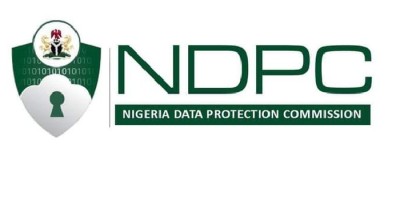- Home
- Grey Matter
- Fintech Update - Intra-African Trades get a boost by CBN’s new regulation for the operation of Pan African Payments and Settlement System
Fintech Update - Intra-African Trades get a boost by CBN’s new regulation for the operation of Pan African Payments and Settlement System
Posted on Fri 12 Nov 2021
- Download Resource
Introduction
On October 11, 2021, the Central Bank of Nigeria (“CBN”) took a fundamental step towards facilitating the settlement and payment of cross-border transactions within the African continent, by issuing a new regulation titled: Guidelines on the Operations of Pan African Payments and Settlement System (PAPSS) in Nigeria (the “Guideline”). The CBN is empowered under section 69 of the Banks and Other Financial Institutions Act (BOFIA), 2020 to issue regulations for the administration, standardization and governance of payment, settlement and clearance operations in Nigeria. The new Guideline is expected to facilitate the operation of the Pan African Payments and Settlement System (“PAPSS”), developed and introduced by Afreximbank in partnership with the West African Monetary Institute (WAMI). The PAPSS is currently being deployed as a pilot scheme in the West African Monetary Zone (WAMZ), before its operation is extended across all regions in Africa.
This update provides a synopsis of the Guideline and highlights the likely impact for key stakeholders, as well as the overall domestic and continental economy.
Key Features of the PAPSS
- PAPSS supports the initiation of cross border retail payments in local currency of the sending country and the receipt of funds in local currency of the beneficiary's country within West Africa.
- The inter-bank settlement will be in US Dollars, with a multilateral netting arrangement.
- The inter-bank net settlement will be based on prefunding by participating financial institutions, through the domestic Real Time Gross Settlement (RTGS) System.
- Afreximbank shall be the settlement agent for transactions conducted on the PAPSS.
- Each participating central bank is required to maintain a USD account with Afreximbank, for the purpose of settling eligible transactions from its country on a net basis.
- Respective central banks are to determine the eligible transactions for which foreign exchange will be provided by them.
- Commercial banks may also operate a USD settlement account with Afreximbank, to settle obligations for payments in respect of ineligible transactions, for which the CBN would not provide foreign exchange.
Further to the above, the Guideline directs all Authorised Dealers to ensure that:
- Eligible payment of imports and receipt of export proceeds settled by the CBN, are restricted to trade-backed transactions only.
- The documentation requirements stipulated in Memorandum 9 and 10 of the Foreign Exchange Manual (2018) and other relevant extant circulars, apply to all transactions under PAPSS.
- The stipulated documentation requirements must be met by banks their customers, before a transaction is initiated on PAPSS.
- Import payments are restricted to goods of African origin.
- Export proceeds repatriated to the CBN are certified by the respective processing banks, as being repatriated by the concerned Exporter.
- All extant guidelines, circulars, and directives on the operations of the Foreign Exchange Market apply to transactions under the PAPSS.
- For outbound payments and verse-versa for inflows, the prevailing exchange rate at the Investors and Exporters FX Window are applied to cross-rates conversions between the Naira, USD and third currencies within Africa.
- Authorised Dealers are to seek and obtain prior approval of the CBN for USD cover, before initiating payments on the PAPSS for the settlement of the CBN.
- Only eligible transactions, as may be determined by the CBN from time to time, may be initiated on the PAPSS for the settlement of the CBN. Thus, items classified “NOT VALID FOR FOREX” shall continue to remain so.
Commentary
At a time when the African Union is at the final stages of the full operation of the African Continental Free Trade Area[1] (“AfCFTA”), the Guideline is expected to facilitate the objectives of the continental single market, widely tipped to be one of the world’s largest single markets, accounting for about US$ 4 trillion in spending and investment across the continent, with multi-trillion dollar opportunities for the 54 African countries. The Guideline is also seen as a regulatory imperative for adequately preparing Nigeria for active participation in the free trade zone.
While trading across the AfCFTA officially began on January 1, 2021, according to the AU’s Johannesburg Declaration, seamless cross-border payments and settlement remain a key driver for achieving free movement of goods and services within the continent – an important catalyst for scaling up intra-African trades and investments. Nigeria, Africa’s largest economy and biggest market, was the 34th African country to ratify the Agreement Establishing The AfCFTA, according to a December 2020 report by the United Nations Economic Commission for Africa (ECA)[2].
By creating a regulatory framework for an orderly and prompt settlement of transactions between trade parties under the PAPSS, the Guideline sets the tone for participation by Nigerian commercial banks (who are Authorised Dealers) and the CBN, with their counterparts within the West-African sub-region, in the pilot scheme period, and in the near future, hopefully across the entire African continent. Nigerian entities expected to participate under the PAPSS should review their obligations and reporting duties appropriately. In addition, they should pay specific attention to the domestic foreign exchange regulations in Nigeria, the provisions of the Guideline, as well as the broader rules of engagement in the continental single market (AfCFTA Agreement & Protocols). Accordingly, participating institutions are advised to seek appropriate legal guidance on how to conduct their businesses in compliance with all relevant laws and regulations.
[1] AU: https://au.int/sites/default/files/treaties/36437-treaty-consolidated_text_on_cfta_-_en.pdf
[2] ECA: https://www.uneca.org/storys/nigeria-becomes-34th-country-ratify-afcfta-agreement














